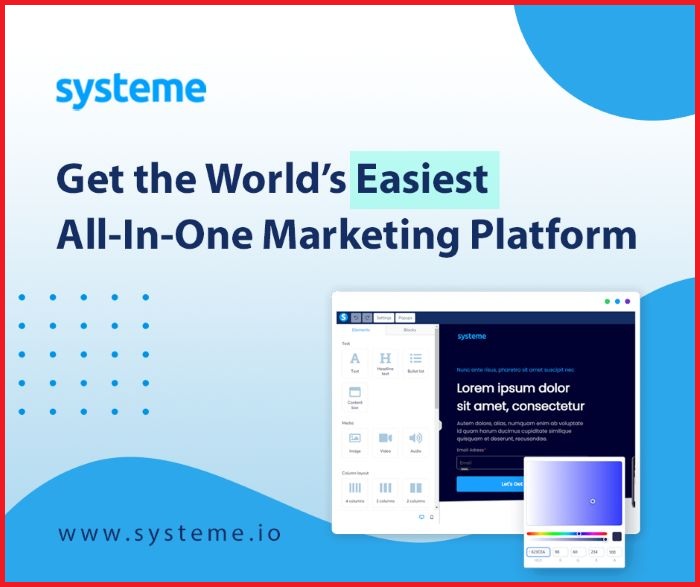The world of digital marketing is changing rapidly, and Artificial Intelligence is at the heart of this transformation. AI is not just a buzzword; it is reshaping how marketers reach and engage with their audience. AI technologies like chatbots and data analytics can enhance customer interactions and deliver personalized experiences more effectively than ever before. As the landscape evolves, you must understand AI’s role in digital marketing to stay competitive.

AI is capable of more than just automating tasks; it also provides valuable insights that can drive strategic decisions. By analyzing vast amounts of data, AI can identify trends and patterns that humans might miss. This allows you to craft more targeted marketing campaigns and refine your content strategy based on customer behavior and preferences. Through these data-driven insights, AI empowers marketers to make smarter choices and achieve better results.
The impact of AI on digital marketing is profound, offering opportunities to innovate and streamline marketing efforts. From content creation to optimizing ad spend, AI is transforming the way you conduct marketing campaigns. As these technologies continue to develop, embracing AI-driven strategies will be crucial for businesses eager to maximize their marketing potential.
Key Takeaways
- AI personalizes customer experiences and enhances engagement.
- Data-driven insights allow for smarter marketing strategies.
- AI technologies streamline and optimize marketing efforts.
Evolution of Digital Marketing
Digital marketing has transformed significantly, shifting from traditional methods to innovative strategies driven by artificial intelligence. This shift has impacted how marketers conduct market research, develop marketing strategies, and leverage digital platforms.
From Traditional Strategies to AI Integration
In the past, marketing strategies often relied on print media, radio, and television. These methods focused on broad messaging to reach a wide audience. As the internet became more prominent, digital marketing emerged through email campaigns and banner ads.
AI has changed how digital marketing strategies are implemented. It enables more precise targeting and personalization. For example, AI can analyze consumer data to predict behavior, helping tailor marketing strategies to individual preferences. This leads to higher engagement and improved conversion rates. By incorporating AI, businesses can react quickly to market trends and customer demands.
Role of AI in Shaping Digital Landscape
Artificial intelligence plays a crucial role in redefining the digital marketing landscape. AI-powered tools can automate tasks such as ad placement and content creation. These tools help reduce costs and improve efficiency.
In market research, AI analyzes vast amounts of data swiftly, providing insights into consumer trends and preferences. This analysis allows you to create marketing strategies that resonate with your target audience. AI also drives advanced customer segmentation, making it easier to reach specific demographics. Overall, AI integration ensures that digital marketing strategies are more effective and adaptable to changes in consumer behavior.
AI Technologies Transforming Marketing
AI is reshaping marketing by integrating advanced technologies. Key areas include machine learning, natural language processing, and generative AI, which are driving innovation and improving creativity in campaigns.
Machine Learning and Predictive Analytics
Machine learning is crucial for analyzing large data sets. It allows marketers to understand customer behaviors and make informed decisions. Tools using predictive analytics can forecast market trends and consumer preferences. This helps tailor marketing strategies, leading to higher engagement and conversion rates. AI tools like R and Python are often used in marketing for data modeling and analysis, enabling businesses to predict trends with greater accuracy.
By leveraging these technologies, you can identify potential leads and personalize content. This enhances the user experience, leading to better customer satisfaction.
Natural Language Processing
Natural Language Processing (NLP) helps in understanding and analyzing human language. It’s important for automating customer interactions and gaining insights from user feedback. By using NLP, you can improve chatbots and virtual assistants, allowing for more human-like interactions. This helps in answering customer queries efficiently and improves satisfaction.
NLP is also crucial in sentiment analysis, which evaluates opinions from social media and reviews. Tools like IBM Watson work well in interpreting these data, offering insights into customer sentiment and helping shape your marketing strategies.
Generative AI and Creative Solutions
Generative AI revolutionizes content creation. Tools like DALL-E, Jasper, and Midjourney help create visual and textual content. This reduces the time needed to produce marketing materials. You can use these AI solutions to generate engaging images or written content that captures attention.
Generative AI allows marketers to experiment with creative concepts that resonate with their audience. By integrating AI into the creative process, campaigns become more dynamic and personalized, appealing to your target market’s interests and emotions.
Enhancing Customer Experience with AI
Leveraging AI in digital marketing can significantly improve how businesses interact with their customers. By providing personalized experiences, automating customer service with chatbots, and using predictive analytics, you can enhance customer satisfaction and engagement.
Personalized Customer Interactions
AI allows you to tailor customer interactions through data-driven insights. You can analyze customer behavior, preferences, and purchase history to create highly personalized experiences. For instance, AI-driven data analytics offers the ability to predict what products a customer might be interested in. This can lead to targeted recommendations, enhancing your marketing strategy. By using AI, your marketing campaigns become more relevant to each individual customer, increasing conversion rates and boosting customer satisfaction. Personalization isn’t just a trend; it’s a vital part of how you engage with your audience today.
Chatbots and AI in Customer Service
AI-powered chatbots are transforming customer service by providing instant support and service at any time of day. These chatbots can handle a range of queries, from basic questions to more complex issues, enhancing the customer experience. Because they operate round the clock, customers receive help immediately, which reduces wait times and improves satisfaction levels. You can program chatbots to learn from interactions, making them smarter over time and capable of handling more complex inquiries. This efficiency can free up human representatives for more detailed support issues, optimizing your entire customer service operation.
Predictive Customer Engagement
Predictive analytics in AI can forecast customer behavior, allowing you to anticipate their needs before they even voice them. This proactive approach means you can engage customers at the right time with the right message, leading to higher engagement rates. For example, AI can identify patterns that signal when a customer might be ready to make a purchase or if they are at risk of churning. With these insights, you can tailor your engagement strategies, ensuring timely interactions that resonate with your customers. By predicting customer actions, you enhance the overall customer journey and build stronger relationships with your audience.
AI-Driven Content Strategy
Artificial Intelligence is transforming how you approach content strategy by enhancing content creation, improving SEO, and enabling hyper-personalization. These advancements open new possibilities in digital marketing, making strategies more efficient and targeted.
Content Creation and Curation
AI tools are revolutionizing content creation by automating several tasks. You can use these tools to generate articles, write social media posts, or even create scripts. They help in maintaining consistent content output without compromising quality. AI also assists in curation by analyzing vast amounts of information and selecting the most relevant content for your audience.
This not only saves time but ensures that your content remains relevant and engaging. By integrating AI, you can tailor content to fit specific themes and trends quickly, based on user engagement metrics and preferences. Automation enables you to update content dynamically to reflect the latest information and insights.
SEO and Targeted Content
SEO is crucial for driving traffic, and AI plays a significant role in optimizing your content for search engines. AI can analyze search patterns and predict which keywords will enhance your content’s visibility. This can lead to higher rankings on search engine results pages (SERPs).
Additionally, AI tools can help identify the best times to publish content and suggest topics based on emerging trends. This ensures that your content is not only optimized for SEO but is also strategically timed and targeted for your audience. By focusing on data-driven insights, you can create content that meets user intent and enhances user experience.
Hyper-Personalization in Content Marketing
Hyper-personalization uses AI to deliver content that is highly tailored to individual preferences. Leveraging data from user behavior, AI can predict what type of content each user finds most engaging. This approach increases engagement rates as the content becomes more relevant to the user.
With AI, you can implement dynamic content strategies that adjust in real-time to cater to individual interests and previous interactions. Hyper-personalization helps in creating personalized marketing campaigns that reflect user preferences, thereby enhancing customer satisfaction and loyalty. By adopting AI, your content marketing strategy becomes more precise and effective.
Automation in Marketing Campaigns
In the realm of digital marketing, automation plays a crucial role in streamlining processes and improving efficiency. By leveraging AI, brands enhance email marketing, manage social media campaigns, and analyze real-time performance metrics, leading to more targeted and effective marketing efforts.
Efficiency in Email Marketing
Automation transforms how you handle email marketing. By using AI tools, you can send personalized messages based on user behavior and preferences. This means emails are more relevant to the recipient, increasing the likelihood of engagement.
Automated sequences can be set up to nurture leads, onboard new customers, and re-engage inactive clients. These tools help you maintain consistent communication without manual intervention, saving time and reducing human error. Through automation, you can A/B test different elements in your campaigns to discover what content resonates best with your audience. This ensures continuous improvement and maximizes email marketing effectiveness.
Social Media Campaigns and Management
Automation is essential for managing complex social media campaigns. Tools exist to schedule posts, respond to comments, and track engagement metrics automatically. This ensures your content reaches audiences at optimal times without requiring constant manual input.
Additionally, automated systems allow you to monitor brand mentions and conversations relevant to your business, enabling quick responses and engagement. By analyzing responses and trends, you can adjust your strategies on the fly. This not only boosts customer satisfaction but also increases the efficiency of handling multiple social media platforms simultaneously. Automation tools even provide insights into which types of content perform best, allowing more informed decisions about future campaigns.
Real-Time Campaign Performance Analytics
Real-time analytics are crucial for understanding the immediate impact of your marketing efforts. Automation provides you with the tools to track campaign performance as it happens, allowing for quick adjustments.
By analyzing data from digital advertising and social media platforms, you can pinpoint which strategies drive conversions and which require optimization. This dynamic approach helps you allocate resources more effectively, optimizing your budget and maximizing return on investment. Furthermore, automated reporting reduces the burden of manual data collection and analysis, ensuring that your insights are up-to-date and actionable. This capability empowers you to stay agile in a competitive market landscape, keeping your marketing efforts relevant.
Data-Driven Insights and Analytics
Data-driven insights transform digital marketing by providing valuable information about customer behaviors and preferences. You can leverage these insights to enhance market intelligence, improve customer segmentation, and address data privacy concerns.
Enhancing Market Intelligence
AI-powered analytics can significantly boost your market intelligence capabilities. By analyzing large volumes of data, AI identifies patterns and trends that you might miss. This can help you anticipate market changes and adjust your strategies accordingly.
AI also improves how you understand consumer sentiment by analyzing customer interactions and feedback. This provides a more comprehensive view of your market landscape. Using predictive models, you can forecast market trends more accurately.
Integrating AI tools into your workflow enhances decision-making, making your marketing strategies more effective and informed.
Customer Segmentation and Insights
AI-driven data analytics allows you to refine customer segmentation. By examining data from various sources, you can create detailed customer profiles and understand their preferences better. This helps deliver personalized experiences that resonate well with each segment.
Customer insights become more precise with AI’s ability to analyze real-time data. This enables you to adapt marketing campaigns swiftly, keeping them relevant and engaging.
Moreover, AI tools can track customer journeys to optimize engagement strategies. Such insights improve your ability to predict customer behavior and increase conversion rates.
Data Privacy and Ethical Concerns
While AI boosts data analytics, it also raises concerns about data privacy. You must handle customer data responsibly, ensuring compliance with regulations like the GDPR. This involves implementing transparent data collection and usage policies.
Ethical use of AI requires balancing business goals with customer trust. Avoid excessive data collection that may invade privacy and focus on what is necessary. You should communicate clearly with customers about how their data is used.
Adopting privacy-focused tools and practices can help mitigate risks. This enhances trust, potentially leading to stronger customer relationships and loyalty.
Strategic Marketing and AI
Artificial intelligence is transforming strategic marketing by optimizing conversion rates, aiding in the development of comprehensive marketing plans, and providing a competitive edge. These advancements empower marketing-oriented goals and enhance the capabilities of AI-powered organizations.
Optimizing Conversion Rates
By integrating AI into your marketing strategies, conversion rates can significantly improve. AI tools analyze vast amounts of data to identify customer preferences and behaviors, enabling more personalized marketing efforts. Techniques such as predictive analytics help you anticipate customer needs and tailor your messaging accordingly.
A/B testing is another area where AI excels. It automates the process, efficiently determining which variations of your marketing content perform best. This ensures your campaigns are constantly optimized for better performance. Machine learning models can suggest improvements by analyzing past campaign data, making strategic decisions more effective.
Developing Comprehensive Marketing Plans
AI assists in crafting comprehensive marketing plans by providing detailed insights into customer demographics and behaviors. With powerful data analysis, you can create targeted campaigns that speak directly to your audience’s needs. This helps in achieving specific marketing-oriented goals with precision.
Automation tools streamline repetitive tasks, such as email campaigns and social media posting, allowing you to focus on strategic decisions. AI-driven platforms offer real-time feedback, helping you adapt your strategies quickly for maximum impact.
Visualization tools, powered by AI, visualize complex data, making it easier for your team to grasp and utilize effectively.
Competitive Edge through AI Adoption
Adopting AI gives your organization a competitive edge by enabling faster response to market changes. Predictive analytics helps you foresee trends, allowing proactive adjustments to your marketing strategy. This adaptability keeps you ahead in a rapidly changing market.
AI-powered organizations benefit from enhanced efficiency and resource management. With AI handling data-heavy tasks, your team can concentrate on creative and strategic endeavors.
Additionally, AI can help identify gaps in your competitors’ strategies by analyzing their public data, providing insights for your advantage.
Adopting AI isn’t just about keeping up with trends; it’s about leading the charge and setting new standards in marketing excellence.
Challenges and Considerations
AI in digital marketing brings opportunities as well as challenges. Navigating these challenges is crucial for effective and ethical implementation.
You need to consider the potential biases in AI algorithms, address implementation difficulties, and ensure your AI strategies remain relevant.
Addressing AI Algorithmic Bias
AI algorithms can unintentionally perpetuate biases found in training data. This can lead to unfair marketing practices and decisions.
It’s important to actively monitor AI systems for biased outcomes and make adjustments as needed.
Regular audits of the data and the algorithms can help identify and reduce these biases. Understand that biases are not always obvious, making vigilance essential.
Building diverse development teams can offer different perspectives, thereby reducing the likelihood of bias. Also, consider using engineered biases to compensate for known issues, ensuring fairer results.
It’s also vital to remain proactive about potential legal implications by following industry standards and ethical guidelines.
Overcoming Implementation Hurdles
Implementing AI in marketing can face several challenges. Initial costs and resource demands are significant.
You must allocate sufficient resources for technology acquisition and staff training. Tech expertise is essential, so investing in skilled personnel or training your team is necessary.
Start by embedding AI in small, manageable projects before scaling up.
Integration with existing marketing systems is another obstacle. Make sure that the new AI technologies complement and enhance your current strategies and tools.
Communication between departments can streamline the adoption process. Having clear goals and conducting trials can help minimize disruptions and highlight areas needing fine-tuning.
Future-Proofing AI Marketing Tactics
AI in marketing is rapidly evolving, and it’s crucial to future-proof your strategies.
Stay updated on technological advancements and shifts in consumer behavior. Investing in scalable solutions will help ensure that your systems can adapt to new developments.
Periodically review and update your AI strategies to keep them aligned with current trends.
Consider using AI for tasks like fraud detection to enhance security and efficiency. Foster a culture of continuous learning within your organization to remain agile.
Building partnerships with tech providers can also offer insights into emerging technologies and new capabilities, keeping your marketing strategies robust and forward-looking.
The Future of AI in Digital Marketing
Artificial Intelligence is reshaping digital marketing by driving personalization and efficiency. As AI capabilities expand, emerging trends and long-term impacts become vital for businesses aiming to stay competitive in the market.
Emerging Trends and Innovations
AI is leading to new trends that change how marketing is done. One major trend is the use of AI chatbots, which offer fast customer support and can improve user interaction with your brand.
AI applications are also enhancing content creation. They analyze data to suggest improvements and predict what will resonate with your audience. This is crucial for optimizing the use of long-tail keywords, which are specific and targeted search phrases that drive traffic.
Another important trend is hyper-personalization. AI tools can examine customer data to deliver tailored experiences, making your marketing efforts more effective.
As AI advances, expect more innovations in real-time decision-making and predictive analytics, two key areas that marketers should watch.
Long-Term Impact on Marketing and Business
In the long run, AI will reshape many aspects of marketing and business operations. The efficiency brought about by AI capabilities helps you gather and analyze data swiftly, enabling better strategic decisions.
Over time, AI’s impact will likely include increased automation of routine tasks such as email campaigns and ad placements. This will allow marketers to focus more on strategy and creativity.
AI is also expected to facilitate deeper insights into customer behavior, helping to predict future trends and demands. This makes your marketing more proactive rather than reactive.
Furthermore, as AI continues to evolve, businesses will need to adapt their strategies to leverage these new tools effectively, thus maintaining a competitive advantage in an AI-driven marketplace.
Frequently Asked Questions
Artificial intelligence is reshaping digital marketing by enhancing strategies, improving personalization, and aiding in data analysis. It also plays a vital role in content creation and is set to increase its influence in the future.
How is artificial intelligence transforming digital marketing strategies?
AI is revolutionizing strategies by automating repetitive tasks. It helps in optimizing ad targeting, analyzing customer data, and predicting trends. This gives you more precise campaign outcomes, leading to efficient resource allocation.
What are the advantages and potential drawbacks of utilizing AI in digital marketing?
AI provides personalized customer experiences and efficient data analysis, but it can be costly and requires extensive data input. There’s a risk of over-reliance on technology, which might reduce the human touch in customer interactions.
In what ways can AI be applied to improve personalization in digital marketing?
AI can tailor marketing campaigns to individual preferences by analyzing browsing habits and purchase history. This results in highly targeted content and ads, enhancing user engagement and increasing conversion rates.
What does the future hold for AI integration within the digital marketing industry?
AI’s role in marketing is expected to grow, with advancements in machine learning and natural language processing. These will lead to more adaptive and real-time marketing efforts, reshaping how you interact with your audience.
How does AI contribute to data analysis and decision-making in digital marketing?
AI processes vast amounts of data quickly, identifying patterns and insights that inform strategic decisions. You can use AI-driven analytics to improve campaign performance and adapt to changing market trends effectively.
What role does AI play in content creation and curation in the context of digital marketing?
AI helps in generating and curating content by evaluating what appeals to your audience. It also helps in creating relevant content suggestions and automating content production. This ensures that you maintain a consistent publishing schedule.





